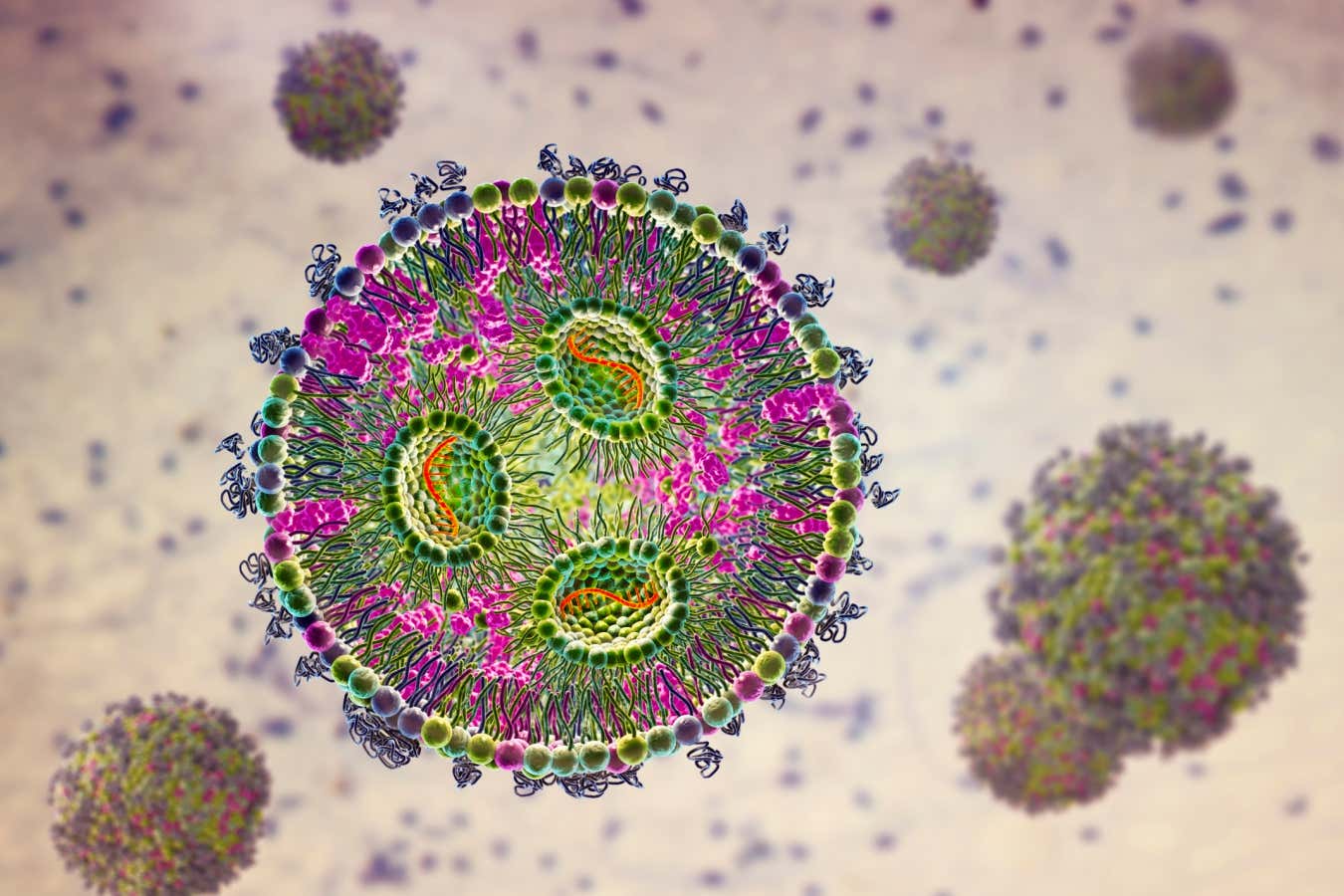A technique for delivering mRNAs to blood stem cells should enable better and cheaper treatments for conditions from sickle cell disease to ageing
By Michael Le Page
27 July 2023
Illustration of a lipid nanoparticle created to deliver mRNA into the body
Dr_Microbe/iStockphoto/Getty Images
The technology in the mRNA covid-19 vaccines can be adapted to deliver genetic material to the blood stem cells in bone marrow, animal studies show. This should lead to better and cheaper treatments for a wide range of conditions, from inherited disorders and infectious diseases such as HIV to even ageing.
“With a single injection, you can modify the fate of cells,” says Stefano Rivella at the Children’s Hospital of Philadelphia. “This is the future of medicine. The sky is the limit.”
mRNAs, or messenger RNAs, carry instructions for making proteins. They can be made to instruct cells to make any protein we want, including those needed for the various forms of CRISPR genome editing. Being able to get mRNAs into blood stem cells therefore opens up a vast range of possibilities.
Advertisement
Stem cells in bone marrow produce many types of cell, including red blood cells and the immune cells that fight disease. Some inherited diseases that affect blood cells, from beta thalassaemia to severe combined immunodeficiency, can already be cured by removing blood stem cells from an individual, correcting the mutations that cause them and replacing the cells in the bone marrow. For instance, a CRISPR gene-editing treatment for sickle cell disease is expected to be approved soon.
But there are two major issues with this approach. Firstly, the personalised nature of the treatment makes it very time consuming and costly.
Secondly, before modified blood stem cells are returned to the body, some of the existing blood stem cells in the bone have to be killed to make room for them. This is done with highly toxic drugs that can cause serious side effects and usually leave people infertile.
